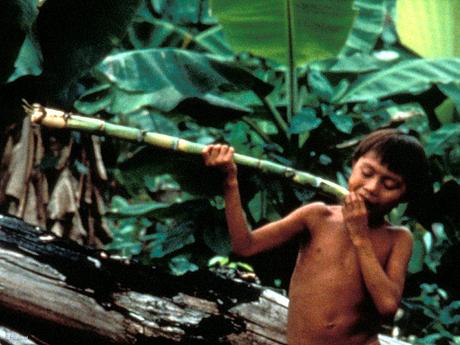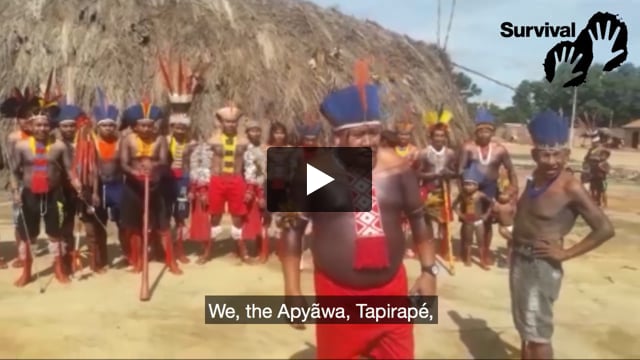Amazon Indians hold mass rally to oppose dams
May 13, 2008
This page was last updated in 2008 and may contain language which is now outdated.
The largest Indigenous gathering in the Brazilian Amazon in nearly twenty years will take place from May 19 to 23 in the town of Altamira, Pará, to protest against a series of huge hydroelectric dams being planned for the Xingu River.
Over a thousand Indians from the Kayapó, Ikpeng and other tribes, along with riverbank dwellers and small farmers, will gather to oppose the project. The Xingu is one the Amazon’s main tributaries. The Kayapó say that damming it will destroy their way of life, kill the animals and fish they rely on, and profoundly affect their health.
The Ikpeng people said in a statement, ‘We are Indigenous people of the Xingu and we don’t want this dam on the river. We want the fish and the fauna and flora, we want the river to be clean, we want water that feeds us and quenches our thirst. We’re not holding back the country’s progress. We’re defending our rights to life, to our land, and to our way of life.’
In 1989, at an historic gathering in Altamira, the Kayapó and other tribes from the Xingu basin rejected the Brazilian government’s plans for a series of six hydroelectric dams on the river. As a result, the World Bank cancelled a loan for the dams, and plans to dam the Xingu were suspended for more than a decade. The 1989 meeting was attended by popstar Sting, and Body Shop founder Anita Roddick.
In recent years, Brazil’s energy planners have once again focused on damming the rivers of the Amazon, including building what would be the world’s third largest dam, Belo Monte (11,181 MW installed capacity), on the Xingu. In all, 70 large dams are being planned for the Amazon Basin by the year 2030.
Elsewhere in Brazil, the remote Enawene Nawe tribe of Mato Grosso state are also resisting plans to build hydroelectric dams on the Juruena River, upstream from their land. The 420 Enawene Nawe, who eat no red meat, say that if the dams are built, the fish they rely on will no longer be able to reach their spawning grounds.
Survival’s director Stephen Corry said today, ‘Big dams like those planned for the Xingu have long been discredited because of their disastrous effects on local people and the environment, as well as their inefficiency. The Brazilian government must listen to the voices of the Kayapó and the other tribes of the Xingu, and drop these plans immediately.’
For further information contact Miriam Ross on (+44) (0)20 7687 8734 or email [email protected]
Visit the International Rivers webpage on Xingu
Indigenous contacts in Brazil (Portuguese only):
- Sheila Juruna of the Juruna tribe, (55) 93 9139 4388 or (55) 93 9171 5409
- Winti Suyá of the Suyá tribe, (+55) 66 8421 1250
NGO contacts in Brazil:
- Glenn Switkes, International Rivers, (55) 35 33326809 or (55) 11 8460 9513 (speaks English)
Portuguese only:
- Antonia Melo e Antonia Martins – Fundação Viver Produzir e Preservar (FVPP), Altamira, (55) 93 3515 2406 or 9904 8680 or 9951 4030
- Dom Erwin Krautler, bishop of the Xingu and president of the Indigenist Missionary Council (CIMI), Altamira, (55) 93 9976 1046
- José Cleanton Curioso Ribeiro, CIMI Altamira, (55) 93 3515 2312 or 9952 0740
- Raul Telles do Valle, Instituto Socioambiental (ISA – Socio Environmental Institute), (55) 61 3035 5114
- Tarcisio Feitosa, CPT (Pastoral Land Commission) and Goldman Prize winner, (+55) 91 9191 5633



